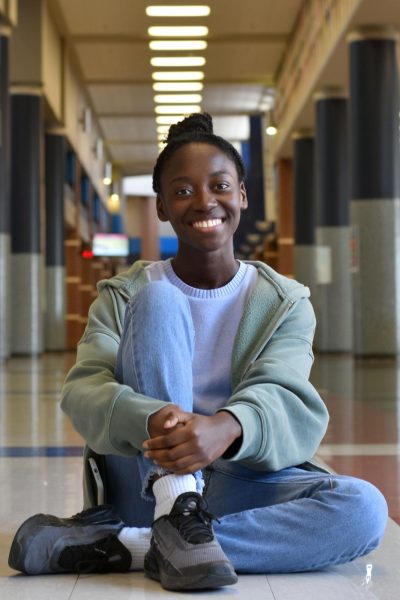Ignite your flame
Trending app promotes positivity and self-confidence
December 2, 2022
Created in August, Gas is the latest trending app for high school students to compliment or “gas up” their peers. Every hour, students take a poll to match uplifting and often silly superlatives with their friends: “will grow up, move to LA and make it big”, “hot girl summer was made for them” or my personal favorite “probably knows how to juggle with flaming razors”. Users can see what qualities their classmates associated with them but not the classmates specifically, as such information is kept anonymous unless one chooses to pay weekly for special access to hints and name reveals with “God Mode.”
As a generation surrounded by comparison on social media, it is easy for teens to feel a low sense of self-esteem, an essential aspect to teen development as they grow to discover their identities. By using an app whose sole purpose is to compliment, students feel confident in their own skin as they receive motivating messages.
Gen Z kids are characterized by their cynical sense of humor often appearing in rather serious situations: inflation, the pandemic and rumors of WWIII being turned into memes and TikTok skits. This humor is likely a coping mechanism to deal with the ever-worsening political, economic, and environmental state of the world and to make light of this melancholic situation. However, using constant ingenuine humor to manage anxiety does not help one’s mental well-being in the long run.
Gas, on the other hand, lists humorous, non-satirical compliments for users to give their peers. By constantly thinking of the positive qualities of their friends, students will build not only a better attitude about people but also about the world around them. It takes three weeks to make a habit and 66 days to change one’s behavior. By simply using Gas, an individual’s view on life can completely shift into an optimistic light.
Many users worry about the safety of the app, as it requires information about students’ grade levels and where they go to school. But the Gas privacy policy makes clear that creators don’t keep users’ information after the sign-in process; the information is solely used to let students take quizzes only involving their classmates. Additionally, unlike social media apps, users can’t communicate with other users through the app, so there’s no way to share information one doesn’t want to be shared. In fact, the app is hardly social at all. Only contacts and friends within one’s school are allowed to take surveys that involve the user. For lack of sociability, however, the app may quickly die in popularity.
Nonetheless, the app is a refreshing break from negativity and a confidence booster for teens. Gas is available in the app store.


